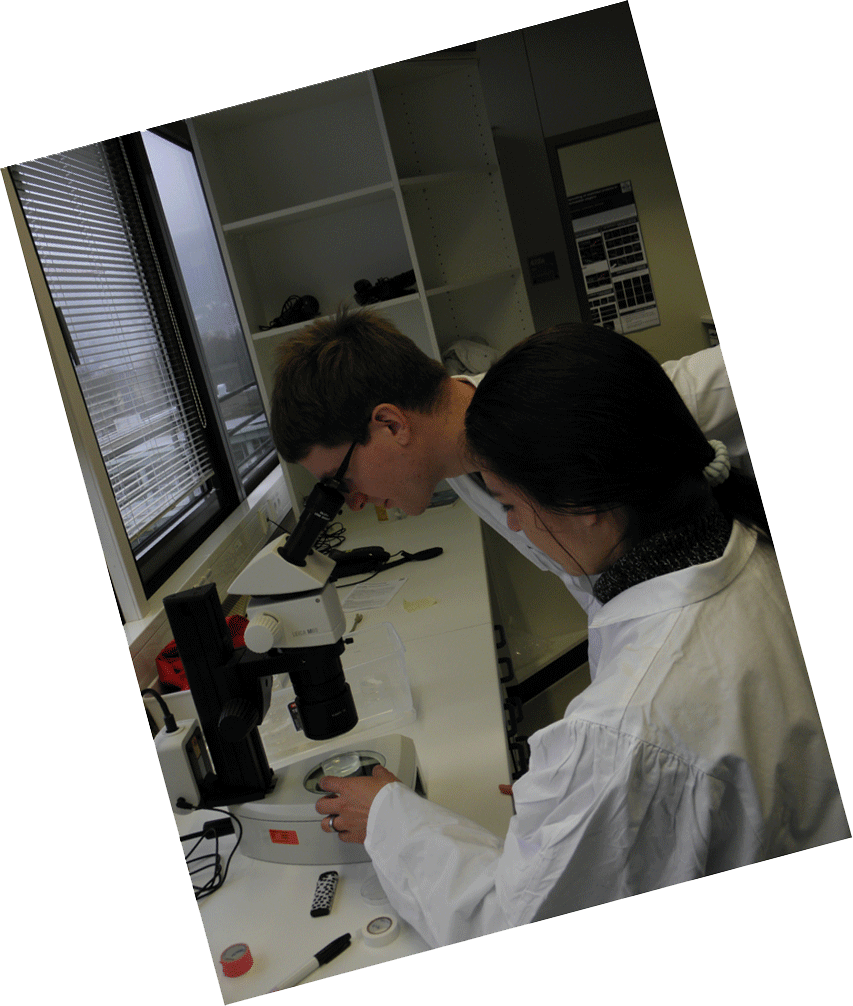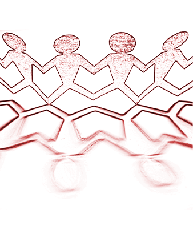Open Positions
We are always considering unsolicited applications of outstanding and motivated candidates for PhD and postdoc positions.
The Bukau operates in a team-oriented manner. Although every PhD student and postdoc works on a distinct project, the projects typically are embedded in a collaborative framework within the lab, where help with daily issues is provided, and other lab members make contributions to a given project. We are an ambitious and internationally competitive lab, but we maintain a relaxed and friendly atmosphere where social interactions and fun are important.
PhD position
"Activity control of standalone bacterial AAA+ disaggregase"
The hexameric AAA+ proteins ClpG and ClpL function as superior protein disaggregases and provide extreme heat resistance to bacteria by reactivating aggregated proteins. They protect bacterial pathogens against temperature-based sterilization protocols, qualifying them as important persistence factors and potential drug target. Elucidating their regulatory and working mechanisms will provide important information for potential future drug development to inhibit or deregulate disaggregase activities. We want to dissect the molecular basis of ClpG and ClpL activity control. How is the activity of the disaggregases repressed in absence of substrate and how does substrate binding trigger AAA+ protein activation? Our preliminary data point to various layers of ClpG and ClpL activity control, including the formation of alternative, large assembly states and ATPase control in hexameric rings. All layers are regulated by substrate binding and involve extra domains that are fused to the ATPase domains of ClpG and ClpL. We want to explore the pathways of substrate- triggered disaggregase activation and how the different layers are functionally intertwined.
References: Bohl V, Hollmann NM, Melzer T, Katikaridis P, Meins L, Simon B, Flemming D, Sinning I, Hennig J, Mogk A (2024) The Listeria monocytogenes persistence factor ClpL is a potent stand-alone disaggregase. eLife 12
Bohl V, Mogk A (2024) When the going gets tough, the tough get going-Novel bacterial AAA+ disaggregases provide extreme heat resistance. Environ Microbiol 26: e16677 Katikaridis P, Romling U, Mogk A (2021) Basic mechanism of the autonomous ClpG disaggregase. J Biol Chem: 100460
Katikaridis P, Simon B, Jenne T, Moon S, Lee C, Hennig J, Mogk A (2023) Structural basis of aggregate binding by the AAA+ disaggregase ClpG. J Biol Chem 299: 105336 Lee C, Franke KB, Kamal SM, Kim H, Lunsdorf H, Jager J, Nimtz M, Trcek J, Jansch L, Bukau B, Mogk A, Ronling, U. et al (2018) Stand-alone ClpG disaggregase confers superior heat tolerance to bacteria. Proc Natl Acad Sci U S A 115: E273-E282
Methods that will be used: Construction, purification and characterization of disaggregase mutants including size (using size-exclusion chromatography, dynamic light scattering and electron microscopy) and activity (using colorimetric and fluorescence-based assays) determination. Structural changes will be monitored by DSS crosslinking coupled to mass spectrometry (XL-MS). In vivo characterizations will include growth assays, fluorescence microscopy and bioluminescence measurements.
The salary is based on TV-L scale (E13, 65%). The position is limited to three years and is available from 01.04.2025.
The candidate should have a strong background in biochemistry. Please submit a CV, a motivation letter, and names of two references to: PD Dr. Axel Mogk (Bukau lab): a.mogk@zmbh.uni-heidelberg.de
____________________________________________________________________________________________________
PhD position
"Protein synthesis and cancer: Co-translational action of Hsp70 and Hsp90 chaperones in cancer cells "
Center for Molecular Biology (ZMBH), Heidelberg University
The classical Hsp90 function is to repeatedly bind and stabilize substrates proteins post-translationally.
Cancer cells abuse the cytoprotective function of molecular chaperones to support their proliferation, survival and malignant progression. Among the most relevant chaperones are the heat-shock proteins 70 and 90 which combat stress-induced protein misfolding, prevent the aggregation of misfolded proteins and support the folding of newly synthesized proteins. In particular Hsp90 has been described as a driver of the malignant phenotype, by keeping mutant oncoproteins in an active state.
Our recent findings challenge this view and suggest that Hsp90, often together with Hsp70, engages many substrates co-translationally. Aiming at a molecular understanding of this activity to cancer progression, the proposed project will explore the principles governing chaperone interactions with nascent chains during ongoing synthesis, determine how this function is highjacked and altered by cancer cells, and especially investigate the role of chaperones in folding of mutant oncogenes. Once established, we will explore whether these mechanisms can be therapeutic targets for cancer treatment. Methods employed include established biochemical and molecular biology tools, as well as the deep-sequencing based methods ribosome profiling (RP) and selective ribosome profiling (SeRP), which allows quantifying proteome-wide interactions of nascent polypeptides with chaperones..
Desired qualifications*:
We are looking for a highly motivated person who enjoys working in a team and has general knowledge of molecular biology, biochemistry and cancer biology. The successful candidate should have basic knowledge in bioinformatics and a strong interest in studying protein folding and quality control in health and disease.
Keywords*:
protein synthesis, translation, ribosome profiling, bioinformatics, protein misfolding and cancer.
Please send applications (CV, motivation letter, two references, bachelor and master transcripts) to Bernd Bukau (bukau@zmbh.uni-heidelberg.de) or Günter Kramer (g.kramer@zmbh.uni-heidelberg.de).
Relevant publications:
i. Original references:
Döring, K., Ahmed, N., Riemer, T., Suresh, H.G., Vainshtein, Y., Habich, M., Riemer, J., Mayer, M.P., O'Brien, E.P., Kramer, G., Bukau, B. Profiling Ssb-nascent chain interactions reveals principles of Hsp70-assisted folding. (2017) Cell 170:298-311.e20. doi: 10.1016/j.cell.2017.06.038. (Abstract).
Shiber, A., Döring, K., Friedrich, U., Klann, K., Merker, D., Zedan, M., Tippmann, F., Kramer, G., Bukau, B. (2018) Co-translational assembly of protein complexes in eukaryotes revealed by ribosome profiling. Nature, doi: 10.1038/s41586-018-0462-y (Abstract).
Bertolini, M., Fenzl, K., Kats, I., Wruck, F., Tippmann, F., Schmitt, J., Auburger, J.J., Tans, S., Bukau, B. and Kramer, G. Interactions between nascent proteins translated by adjacent ribosomes drive homomer assembly. Science (in press).
ii. Review:
Kramer, G., Shiber, A., Bukau, B. Mechanisms of Co-Translational Maturation of Newly Synthesized Proteins. (2019) Ann. Rev. Biochem., doi: 10.1146/annurev-biochem-013118-111717 (Abstract).

Carmen showing Josef a specimen through the microscope
|

